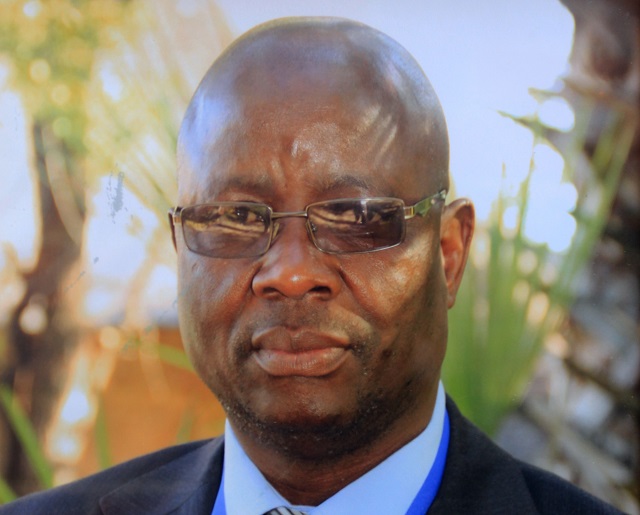Guerrilla fighter and intelligence guru: The remarkable life of Cde Zenzo Ntuliki

PROFOUND sorrow engulfed the nation on April 21, 2017, following the death of one of the country’s intelligence gurus, Cde Zenzo Ntuliki, who died at Mater Dei Hospital in Bulawayo. The late national hero, whose nom de gurre was Cde Maphekapheka Robson Shongoto, died after a long illness. He was 57.
Cde Ntuliki was born on 8 August 1959 in Matshetsheni area, Esigodini, in Gwanda District, Matabeleland South, to James Ntuliki and Ngazi Ntuliki (née Moyo). He was the sixth born in a family of 13. He grew up in Mawabeni in Esigodini. From 1966 to 1972, he was enrolled at Mawabeni Primary School, where he completed primary education in 1973, he enrolled at Mzinyathini Secondary School. He then transferred to Gwanda Secondary School, where he studied from 1974 to 1975.
The late Cde Ntuliki could not complete Secondary education as he sacrificed his studies and skipped the country for Botswana, to join the armed liberation struggle under the Zimbabwe People’s Revolutionary Army (Zpra).
Cde Ntuliki was among a group of eight valiant cadres, made up of pupils and some of their teachers, who included the current Permanent Secretary in the Ministry of Local Government, Public Works and National Housing, Cde George Mlilo, who, irked by the excesses of the oppressive Rhodesian system, left Gwanda on foot, entering Botswana through Gobajangu.
He was initially based at Selebi Pikwe in Francistown. He was later transferred to Nampundu base in Zambia, which was under the command of Cde Ahmed Gutu
In 1978, the late national hero was sent to Tanzania, where he received initial military training at Mgagao and Morogoro camps for eight months. He was under the command of Cde Sam Fakazi. At that time, the Zimbabwe African National Liberation Army (Zanla) and Zpra cadres were jointly being trained at the Morogoro Camp
Upon his return from Tanzania, he was deployed to Chakwenga Guerrilla Training (CGT) Camp , which was under the command of the current Zimbabwe Defence Forces Commander, General Philip Valerio Sibanda. His responsibilities at the camp included vetting and screening recruits before they underwent training and the provision of security trainees.
In 1977, Cde Ntuliki was among a group of 15 cadres, who were selected to undergo specialised training in Security and intelligence, whose curriculum included Very Important Persons (VIP) protection, in the city of Varna, Bulgaria. The group was led by Cde John Pinda, with Cde Ntuliki as Deputy Commander, as well as the group’s political commissar. This specialised group also included the likes of Cde Albert Nguluvhe, alias Miles Jubane, and the late Cde F Bonde, and Cdes E Matibela and Todd Sibanda, among others.
The group eventually formed the core of the Zimbabwe African People’s Union (Zapu)’s National Security Organisation (NSO). Upon the group’s return from Bulgaria in 1978, some of its members were deployed in the operational area while others were sent to various camps as instructors. Cde Ntuliki was deployed in the Eastern and Southern Front under the command of Cde Sam Madondo. The late Cde Ntuliki was later on recalled to Lusaka, Zambia, to reinforce the security of the Zapu leader, Cde Joshua Mqabuko Nyongolo Nkomo.
Whilst serving in this capacity, Cde Ntuliki survived an enemy attack at Cde Nkomo’s residence in Zambia in 1979, during a Rhodesian raid whose objective was to eliminate Father Zimbabwe, to incapacitate and disable Zapu.
In recognition of his bravery, commitment to the liberation struggle, exemplary service and leadership qualities, Cde Ntuliki received several promotions that saw him rising to the rank of Detachment Commander
At Independence in 1980, the late national hero returned to Zimbabwe, as part of a VIP protection contingent under the command of the late national hero, Cde Albert Nxele. Cde Ntuliki was awarded a Silver Medal in recognition of his immense contribution during the liberation struggle. On 19 June 1980, the late Cde Ntuliki joined the Zimbabwe Republic Police (ZRP) as an Auxiliary Patrol Officer. He served in ZRP until December 1981, and on leaving, joined the President’s Department. He was attested on 1 January 1982 as a Security Aide II (SO) in the Close Security Unit (CSU) department. Upon completion of his initial service training, he was appointed a Protection Officer and deployed at the CSU headquarters, at the Munhumutapa offices, in Harare.
On 10 October 1983, the late national hero was transferred to Bulawayo. On 1 July 1986, Cde Ntuliki was promoted to the rank of Security Aide 1 (5501 and subsequently transferred to Masvingo Province on 1 March, 1987. Cde Ntuliki was further promoted to the rank of Senior Security Aide (10) on 1 July 1989, in recognition of his loyalty and dedication to duty, he was further promoted to the rank of Chief Security Aide on 1 July, 1991.
He was then transferred to Chinhoyi as the Deputy Head of the CSU unit in that region. On 1 September, 1994, the late Cde Ntuliki was transferred from the CSU to the Government Protective Security Inspectorate Division (GPSI). When the Ex-Combatant Verification Programme commenced in the late 90s, Cde Ntuliki was one of the cadres that were seconded to the team that worked tirelessly to correctly identify genuine war veterans, weeding out imposters because of his acquaintance to most of the freedom fighters during his stint with the leadership in the struggle, as well as his intelligence background. The operation saw some of the imposters being prosecuted and imprisoned for fraud.
On 1 January, 2000, Cde Ntuliki was promoted to the rank of District Intelligence Officer (DIO). He was then transferred from the GPSI Division, to the Internal Branch and subsequently appointed Deputy Provincial Intelligence Officer (PIO) Matabeleland South Province, on 4 November, 2004. On 1 June 2005, the late national hero was promoted to the rank of a PIO and deployed in Matabeleland South Province. In this position, he carried out his operational oversight duties with great diligence.
On 1 July, 2013, the late Cde Ntuliki was further promoted to the rank of Assistant Director, Western Region, responsible for Matabeleland South, North, Bulawayo, Masvingo and the Midlands Provinces. Cde Ntuliki’s leadership of these provinces exhibited a rare commitment and dedication to the security of his motherland that was underpinned by a colossal determination to see Zimbabwe succeeding against the machinations of the country’s detractors, who were maliciously opposed to the Land Reform Programme.
The late Cde Ntuliki was a great champion in the drive to emancipate the oppressed black Zimbabweans during the liberation struggle, and after independence, worked tirelessly for their empowerment. Despite his attainment of a very high rank in security, he remained a humble compassionate and approachable leader, who was always willing to assist those in need.
At the time of his death, he was survived by wife, eight children and six grandchildren
λ Taken from “A Guide to Heroes Acre)








Comments